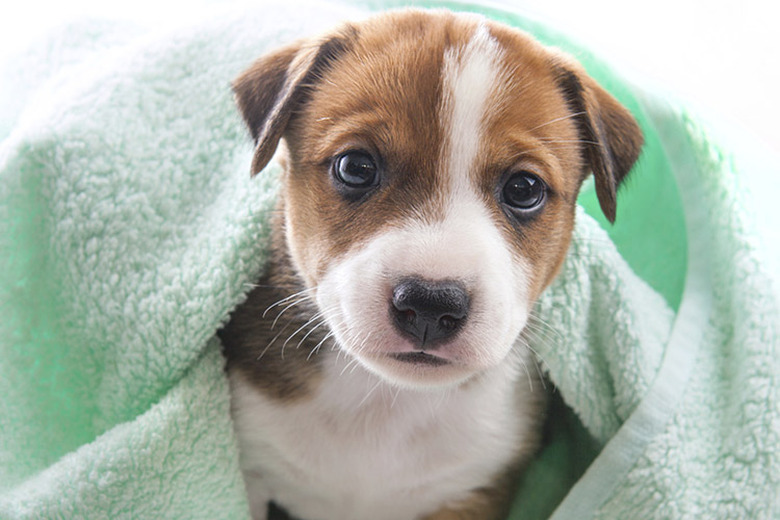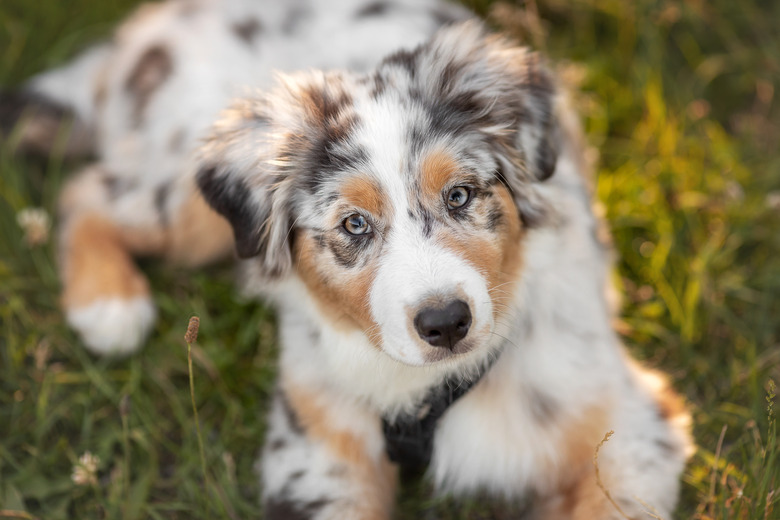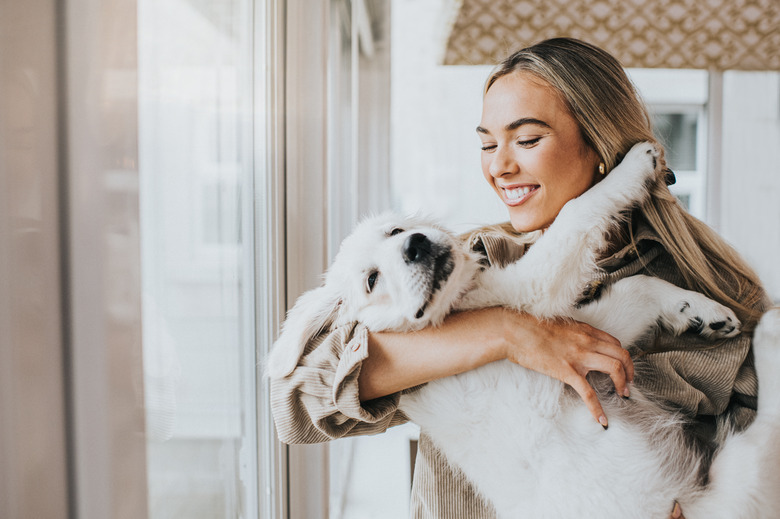Daily Time Commitment When Caring For A Puppy
A puppy is a delight, but he requires a lot of time and attention. Not only does a puppy need to potty every few hours, but he also needs frequent feedings and socialization training so he associates well with people and other pets. Generally speaking, caring for a puppy takes a minimum of two to three hours, spread throughout the day and night. Significant early training can make the amount of time you spend daily caring for a puppy higher.
House train your puppy
House train your puppy
Most puppies leave their mother at 8 weeks of age. At this point, they can control their bladders for two hours—one hour for each month of age. You'll need to be there for the dog every two hours throughout the day, particularly if you want to expedite housebreaking.
Take him to a designated spot also after feedings, after play, and after he wakes up. At night, he will need to go out at least once. As he grows, he will eventually go seven to eight hours without a potty break if you remove his water at least two hours before bedtime. If you work during the day, you will need someone to take your younger dog out for potty breaks.
Regular feeding times
Regular feeding times
Besides a little bladder, your puppy has a small stomach. Because he can't take in large amounts of food at each feeding, you need to feed him three to four times a day until he is 6 months old. At 6 months, you can reduce feedings to twice a day, but continue to feed him the recommended amount of food for his age and breed.
Keeping him on a set daily schedule for feedings will help regulate his potty schedule and make house training much easier. Put the food down for no more than 30 minutes, removing the bowl after that time elapses. You may have to supervise him so he eats his food. If you are working, you will need someone to come in for a midday feeding.
Socializing young puppies
In addition to house training and feeding, socializing your new puppy is important so he doesn't have a fear of people, noises, or other social situations. Around 8 to 10 weeks of age, your puppy will enter the fear stage. He will want to be close to you. Avoid crowded areas, such as parks.
It is during this time that you want him to meet new people in non-threatening surroundings. Begin on his turf by inviting friends to your home. Once he is comfortable meeting people in your home, start to take him out in public. He should be socializing with other people almost every day. Be sure to also introduce him to other dogs and experiences so he becomes familiar with a range of noises and smells.
Other puppy care considerations
Other puppy care considerations
Your new puppy will need visits to the veterinarian for vaccinations at eight weeks, 12 weeks, and 16 weeks of age. When he is teething, he will need supervision so he doesn't chew on furniture. Exercise is important, as well. You need to take your pup out every day for play and a walk.
As he grows, the amount of time for care will shorten. He will not need as many potty breaks or as many feedings, and he will learn to adapt to new people and new surroundings. The hours you spend each day caring for your pup will benefit you and your new best buddy. As he matures, he'll become less rambunctious. He'll have a routine and he'll relax in your presence, so you'll have less hands-on time caring for the dog but all the quality time in the world.


